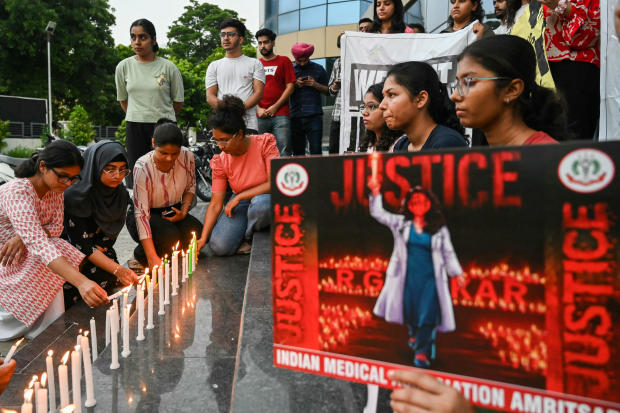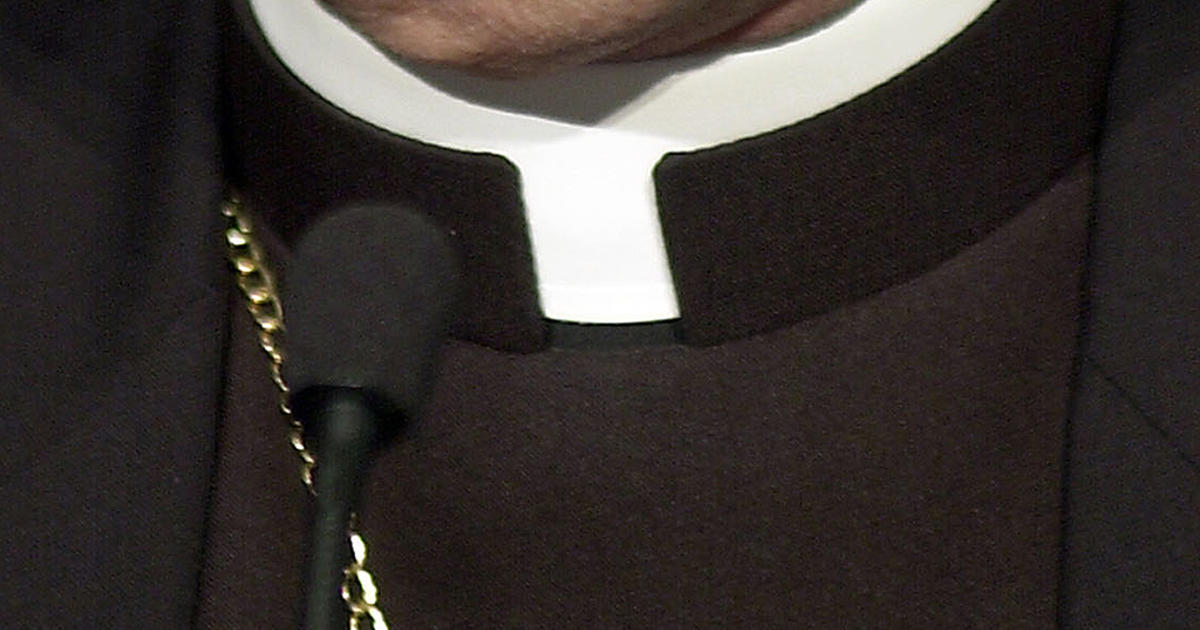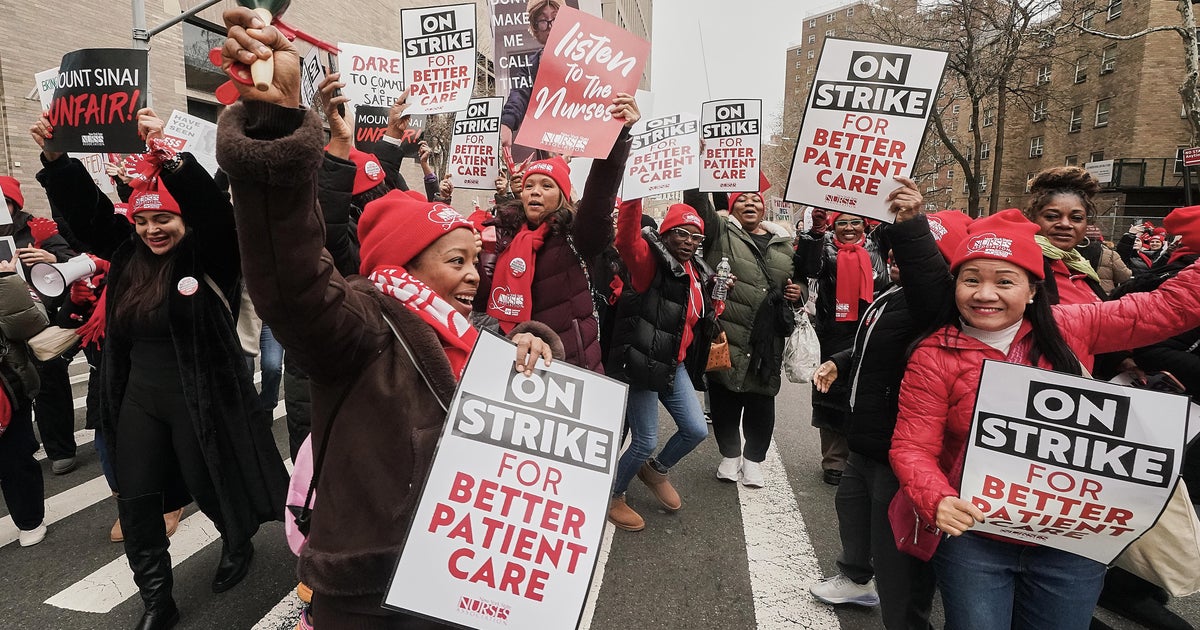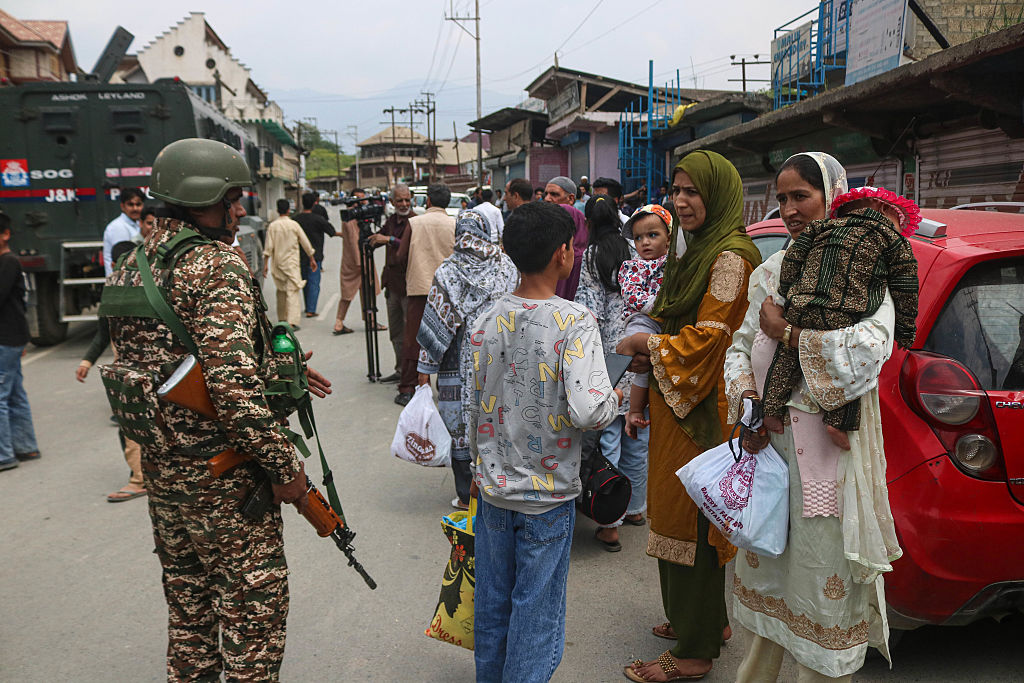India's doctors refuse to end strike over brutal rape and murder of trainee at Kolkata hospital
New Delhi — Public hospitals across India were turning away all but emergency patients Monday as hundreds of thousands of doctors continued refusing to work as part of a national strike that began Saturday over the brutal rape and murder of a young female doctor.
Medics have demanded safer workplaces and swift legal action following the rape and murder of the 31-year-old trainee doctor at the R.G. Kar Medical College and Hospital in the eastern city of Kolkata on Aug. 9, which sparked a new wave of national rage over violence against women.
"Our indefinite cease-work and sit-in will continue till our demands are met," vowed Dr. Aniket Mahata, a spokesperson for striking junior doctors at the R.G. Kar facility.
The government has promised to establish a committee to suggest ways to improve safety for doctors, and urged them to return to work, but the medics have been unconvinced by the promise of action. The strikes started in Kolkata and spread quickly to other cities and states last week, becoming a national action on Saturday backed by the Indian Medical Association.
Supporters of the two biggest soccer clubs in West Bengal state, where Kolkata is located, put aside their arch rivalry to march on the city's streets Sunday evening, demanding justice for the victim and safety for doctors.
Doctors in India's capital Delhi and in Odisha state have also vowed to continue their strike until their demands for immediate changes are met.
Thousands of people held protest marches across India, including in the sprawling cities of Delhi, Mumbai and Hyderabad, over the weekend. Demonstrations were also held near the Indian parliament in New Delhi.
The nationwide outrage and protests are similar to those seen after the 2012 gang-rape and murder of a young woman on a moving New Delhi bus. That vicious attack prompted India to enact tougher laws against sexual violence, but according to the latest available government data, as recently as 2022 authorities were still registering about 90 rapes on average per day.
The autopsy report on the trainee doctor in Kolkata showed a level of brutality similar to the 2012 Delhi gang rape. Indian news outlets claiming to have seen the report said it detailed multiple injuries inflicted on the woman before she died, with strangulation listed as the cause of the death. The nature and extent of the injuries reported suggests the woman resisted and may have been tortured before she was killed.
The Kolkata Police arrested a volunteer member of the force on Aug. 10 and have charged him with rape and murder, but the victim's parents have raised questions about the possibility of more people being involved. The case was transferred to India's top criminal investigative authority, the Central Bureau of Investigations (CBI), last week.






